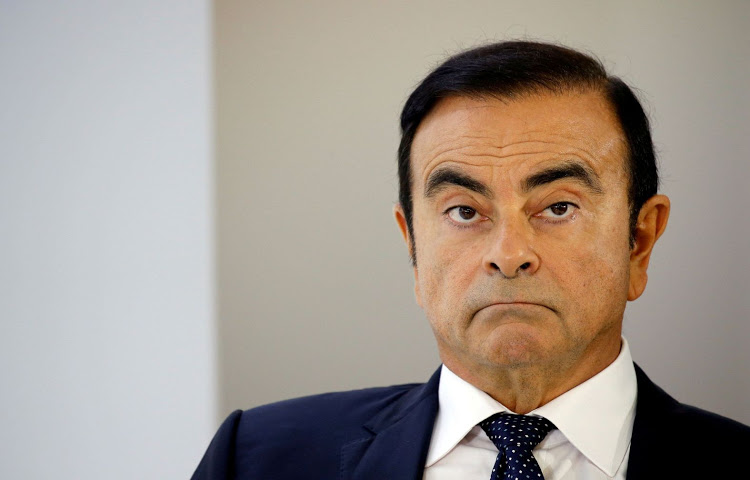Nissan to oust chairman
November 22, 2018 | Expert Insights

The chairman of Nissan, Renault and Mitsubishi Motors, Carlos Ghosn, has been detained by Japanese authorities after a two-month long investigation that revealed "significant acts of misconduct."
Background
Carlos Ghosn is a Lebanese–Brazilian–French businessman, has served as the chairman and CEO of Renault, Nissan, and of Mitsubishi Motors. He was also the chairman and CEO of the Renault–Nissan–Mitsubishi Alliance, the strategic partnership overseeing Nissan, Mitsubishi and Renault through a unique cross-shareholding agreement. Besides, from June 2013 to June 2016, Ghosn was also the chairman of Russia-based automobile manufacturer AvtoVAZ.
After his radical restructuring of Renault that returned the company to profitability in the late 1990s, Ghosn became known as "Le Cost Killer". He has also earned the nickname "Mr Fix It" for spearheading the turnaround of Nissan’s bankruptcy in 1999 and also for orchestrating one of the auto industry's most aggressive downsizing campaigns in the early 2000s.
Following the Nissan financial turnaround, in 2002 Fortune awarded him Asia Businessman of the Year. In 2003 Fortune identified him as one of the ten most influential people in business outside the U.S., and its Asian edition voted him Man of the Year.
Analysis
Nissan said that after conducting a two-month investigation, the chairman Carlos Ghosn would be ousted for being accused of “significant acts of misconduct", such as under-reporting his pay package and personal use of company assets.
The Japanese media have reported that he under-reported an amount totalling 5bn yen (£34m) over a five-year period from 2011. However, this report is yet to be confirmed.
In total Mr Ghosn was paid 735m yen (£5.1m) by Nissan in the most recent financial year, 227m yen (£1.6m) by Mitsubishi and €7.4m (£6.6m) by Renault. Incidentally, from 2010 it is mandatory for Japanese firms to disclose the salaries of executives who earn more than 100m yen.
France has also sought to oust Ghosn from the helm of Renault a day after his arrest in Japan on financial misconduct allegations. The French Finance Minister Bruno Le Maire said: “Carlos Ghosn is no longer in a position where he is capable of leading Renault.” However, he also said that they have not yet demanded a formal departure from the management board due to the lack of proof and added that “we follow due legal procedure.”
The news of the arrest had a severe effect on the company shares as Renault shares were down 4.3 per cent at 0915 GMT, having slumped 8.4 per cent on Monday. Nissan shares also fell another 5.5 per cent, while those of Mitsubishi Motors, ended down nearly 7 per cent.
Mr Ghosn had an extravagant life as he kept homes in Paris, Amsterdam, Beirut and Rio de Janeiro; travelled across the globe in a corporate jet, and even dined with many heads of state. It was reported that he collected contemporary art, invested in wineries and, in 2016, rented out Versailles to celebrate his wedding to his second wife, Carole, along with her 50th birthday.
Robin Ferracone, the founder of Farient Advisors, an executive compensation advisory firm, said that Mr Ghosn was “always arguing about whether he was adequately compensated.” He added that “The question was whether he should be compared to Japanese standards, or international standards or American standards.”
Christopher Richter, deputy head of Japan research at CLSA, an investment and brokerage group also added to the difference in payment method. He said: “There was always a disconnect between Western management salaries and Japanese management salaries.”
Counterpoint
A recent report revealed that Carlos Ghosn had been planning a merger between Renault and Nissan before his arrest in Tokyo. This deal was, however, opposed by the Japanese carmaker’s board and was looking for ways to block it.
Incidentally, Renault’s 43 per cent stake in Nissan gives it more control over Nissan than vice versa. This control comes with the ability to appoint senior executives. However, Nissan’s 15 per cent stake in Renault comes with no voting rights and no other control over Renault.
Assessment
Our assessment is that Carlos Ghosn’s arrest will affect the three companies as the question is also about the personal integrity of its chairman who was once considered a star. The trio company has had a single executive at the helm of this massive corporation and we feel that this may have led to a lack of corporate oversight. We also feel that there must be a cap on the emoluments paid to top management.








Comments